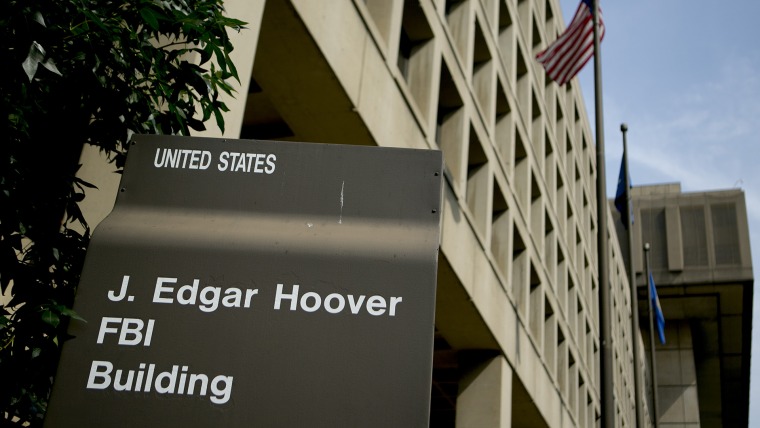Donald Trump traveled to Pennsylvania early yesterday to honor the anniversary of the 9/11 attacks, but before heading to Air Force One, the president thought it was necessary to whine on Twitter for a while and peddle a new conspiracy theory.
One of his missives read, "New Strzok-Page texts reveal 'Media Leak Strategy.' @FoxNews So terrible, and NOTHING is being done at DOJ or FBI - but the world is watching, and they get it completely."
As it turns out, someone "gets it completely," but it's not Donald Trump.
The president appeared to be echoing a new line of attack pushed by Rep. Mark Meadows (R-N.C.), one of the White House's top allies in Congress, who's worked up about a text former FBI agent Peter Strzok sent Justice Department lawyer Lisa Page on April 10, 2017. According to Meadows, Strzok wrote, "I had literally just gone to find this phone to tell you I want to talk to you about media leak strategy with DOJ before you go."
This, according to Trump, is "terrible" and worthy of federal law enforcement scrutiny. There's reason to believe the president doesn't know what he's talking about.
Strzok's lawyer, Aitan Goelman, responded Tuesday that client was not referring to leaking to the media -- but a strategy to prevent leaks."The term 'media leak strategy' in Mr. Strzok's text refers to a Department-wide initiative to detect and stop leaks to the media. The president and his enablers are once again peddling unfounded conspiracy theories to mislead the American people," Goelman said.
The pushback to the conspiracy theory didn't just come from Strzok's lawyer; members of Congress were eager to highlight reality, too. Roll Call added:
Democrats attempted to refute point-by-point a letter from GOP Rep. Mark Meadows to Deputy Attorney General Rod Rosenstein in which Meadows claims text messages between a former FBI agent and a Justice Department lawyer recently released to Congress show there is a "systemic culture of media leaking by high-ranking officials" at the agencies.But the fired FBI official Peter Strzok and DOJ lawyer Lisa Page were not texting about leaking information to the press -- they were texting about combatting leaks, Democrats said Tuesday.Reps. Elijah Cummings of Maryland and Jerrold Nadler of New York, the top Democrats on the House Oversight and Government Reform and Judiciary Committees, respectively, said Meadows ripped two isolated text messages out of context to paint an inaccurate picture of the text conversation between Strzok and Page.
I'm not yet in a position to know whether Mark Meadows deliberately peddled a deceptive claim. It's possible the far-right North Carolina congressman was simply confused and didn't take the time to review the information in its full context.
Either way, Trump didn't bother to check. Instead, the Conspiracy Theorist in Chief got the story backwards condemning a "Media Leak Strategy" that set out to combat leaks, not disseminate them.
Last summer, the president declared, “When I make a statement, I like to be correct. I want the facts… Before I make a statement, I need the facts.” White House Press Secretary Sarah Huckabee Sanders later added that Trump “believes in making sure that information is accurate before pushing it out as fact.”
How's that working out?
